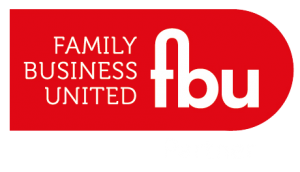By Ben Fowler, Managing Director of Western Pension Solutions
If you’re a family business with a legacy final salary scheme, a full buy-out of your scheme with an insurance company will almost always be the best outcome for all stakeholders. For your business, it removes an unpredictable non-core liability from the balance sheet and liberates you and the company from the cost and complexity of pension regulation. For your current and former employees, an insured buy-out provides the strongest guarantee that the pension promise will be paid in full.
You will no doubt have been told that the cost of a buy-out is prohibitive, but that overlooks the many things you could be doing to make what seems a distant dream an achievable reality. At the Vestey Group, we achieved a full Buy-out of the £500m liability Western United Group Pension Scheme without any cash contribution from the company and with very significant benefit improvements for members.
Positive outcomes such as this can only be achieved by developing a fully integrated long-term strategy. Of course, all businesses and all pension schemes have their unique features, but there are many aspects of the Vestey strategy that can be readily transferred to other family businesses.
Here are 10 steps towards a successful Buy-out strategy…
Taking the lead – It’s vitally important that you take the initiative in setting the long-term strategy for your pension scheme. That’s because you are uniquely placed to take into account the full range of diverse stakeholder interests, including the needs of the business and future generations of your family. The Trustees of your pension scheme (and their advisers) are required to take a much narrower view based entirely on the interests of scheme members.Once you’ve agreed your objective from the shareholder and company perspective, the next step is to make sure that everyone is aligned behind it.
Find the right advisers to support your strategy – Both the Company and the Trustee’s advisers need to understand the unique features of your business and the scheme. More importantly, they need to share your commitment to success. These are challenging times for businesses with pension schemes – it’s no longer good enough for advisers to earn their fees by simply turning up at meetings and letting their modelling tools do all the work. Neither is it helpful to have consultants present you with big-ticket projects that promise much, but often deliver little in supporting your strategy.
Set an ambitious but realistic funding target – It’s important you set a long-term funding target that reflects the cost of achieving a Buy-out on good commercial terms. This will almost certainly be a lower target than the Scheme Actuary’s prudent estimate. In the case of the Vestey scheme, the actuarial reports were still showing a significant deficit when the deals themselves produced a significant surplus.
Investment strategy –Trustees are often required to spend far too much time discussing the minutiae of investment strategy at the expense of broader strategic objectives. Ultimately, the aim is to build up a portfolio of assets that can be transferred quickly and cost effectively to the insurer. That means having a strategy and usually formal mechanisms in place to de-risk the assets as you move closer towards your funding target.
Governance matters – Having the right governance structure and processes is essential to support the strategy. The pension schemes of family businesses often benefit from strong governance and it’s not unusual for family members to be represented on the trustee board. That’s all well and good, but for a Buy-out strategy to be effective, there need to be processes in place that facilitate quick decision-making and fast execution. Otherwise, opportunities will simply pass you by. There are several models you can adopt and the one that is appropriate for you will depend on a range of factors.
Make your money work harder – Putting your money in a pension scheme feels like feeding a black hole, which is why it’s important to look at ways that existing budgets for pension expenses (including those for deficit recovery contributions) can be better used to create long term value. That means investing in elements of the strategy that will ultimately reduce the cost of a Buy-out. As you get closer to your funding target, you may even be willing to make a final cash contribution equal to the discounted value of future adviser expenses.
Data and documents – Achieving a Buy out on good commercial terms can only be achieved if you have optimised your data and your scheme documents can stand up to insurer due diligence. Most pension schemes have only carried out the most superficial of checks aimed at meeting weak regulatory standards and often the opportunity to gather highly price sensitive data is missed. Data cleansing and due diligence are incredibly dull subjects to engage with, but anybody who has been involved in buying or selling a business will understand its importance in securing a good deal. The Vestey scheme was a complex arrangement made up of more than 200 separate companies. Cleansing the data was a long and difficult process, but the hard work paid significant dividends when it came to transacting in the Buy-out market. Failure to deal with these issues in advance can lead to nasty surprises when you go to market.
Manage your liabilities for mutual benefit – A successful Buy-out strategy will focus equally on both sides of the pension scheme balance sheet. A series of carefully-managed liability management exercises has the potential to significantly accelerate your journey towards Buy-out in a way that can lead to more positive outcomes for members. The key to a successful exercise is to find the optimum trade-offs where a benefit that would be otherwise expensive to insure can be paid to members in a different form that better suits their personal circumstances and lifestyle needs. It’s essential that these types of exercises are carefully planned in relation to the overall strategy and only after you have fully clarified your scheme’s data and benefit structure. A poorly executed exercise may result in overall liability reduction, but it will erode the trust of your members and can potentially lead to long term reputational damage for you and your business.
Crossing the line – The market for buying out pension schemes is more dynamic and innovative than you might think. Timing your approach into the market is clearly important, but securing insurer engagement is key. That means your pension scheme needs to be fully transaction-ready and you need to demonstrate your ability and willingness to follow through with the deal if an insurer can meet your price target. A highly process-driven approach to securing a Buy-out, which ignores the dynamics of the market, may give the illusion of efficiency, but it’s unlikely to yield the best results.
Pension schemes rarely buy out in one go (the Vestey Buy-out was a series of three transactions spread over 2 years). In practice, it’s more likely you will insure the benefits in a sequence of smaller insurance deals (known as Buy-ins). Once you start on this process, you will find the process develops its own momentum and insurers will always be more willing to engage with schemes that have experience of doing deals.
Delivering on the promise – Buying out your pension scheme is a big step, but securing the benefits of your members with an insurer is the most effective fulfilment of that promise, not a dereliction of duty. Your members will thank you for it and so will the next generation of your family.
This article was first published on the Institute for Family Business website.
The Institute for Family Business (IFB) is a not-for-profit, membership organisation supporting and championing UK family business. Our mission is to help family businesses celebrate, leverage and sustain their unique contribution to the long-term prosperity of the UK. We are the voice of UK family firms, supporting families through events, connections, and the latest family business knowledge. Our members have a combined turnover of £100bn, and employ around half a million people.




